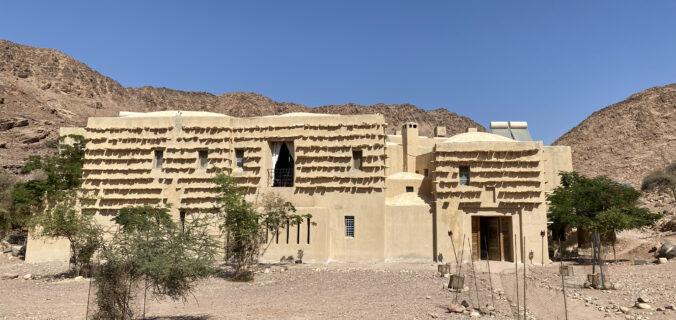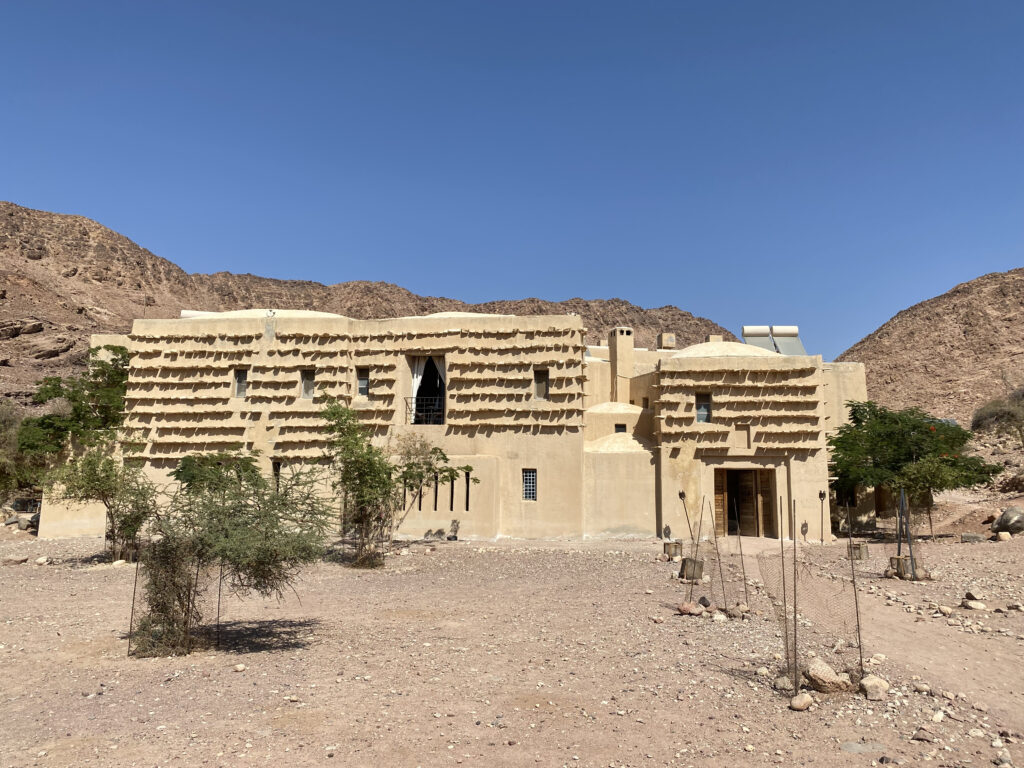
Named one of 25 best Ecolodges in the world by National Geographic Travel gives Feynan Ecolodge, located in the Dana Biosphere Reserve, bragging rights it deserves. The Royal Society for the Conservation of Nature opened the
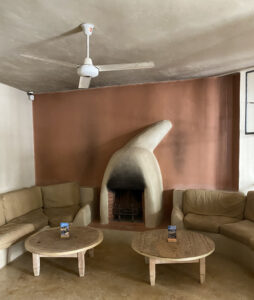
Feynan Ecolodge in 2005. This award has come about due to the ethos of the lodge and the experiences of their guests. That wonderful hospitality is provided exclusively by members of the Bedouin community.
The location of Feynan Ecolodge is in the Wadi Feynan (wadi meaning seasonal river valley) in the southern part of Jordan. I was curious about the meaning of “Feynan”. One Bedouin shares. “It means long beautiful black hair, Feynan has a long heritage, it’s still growing and we are part of it. The black represents the black surrounding mountains to me.”
Interestingly, from Feynan Ecolodge guests can take the Feynan Heritage Trail, an easy walking trail where you can explore buildings of Feynan’s earliest Neolithic farmers to the remains of the Roman copper working industry. And with the Feynan Heritage Trek visitors can trek to some of the best preserved archaeological sites in the Dana Biosphere Reserve.
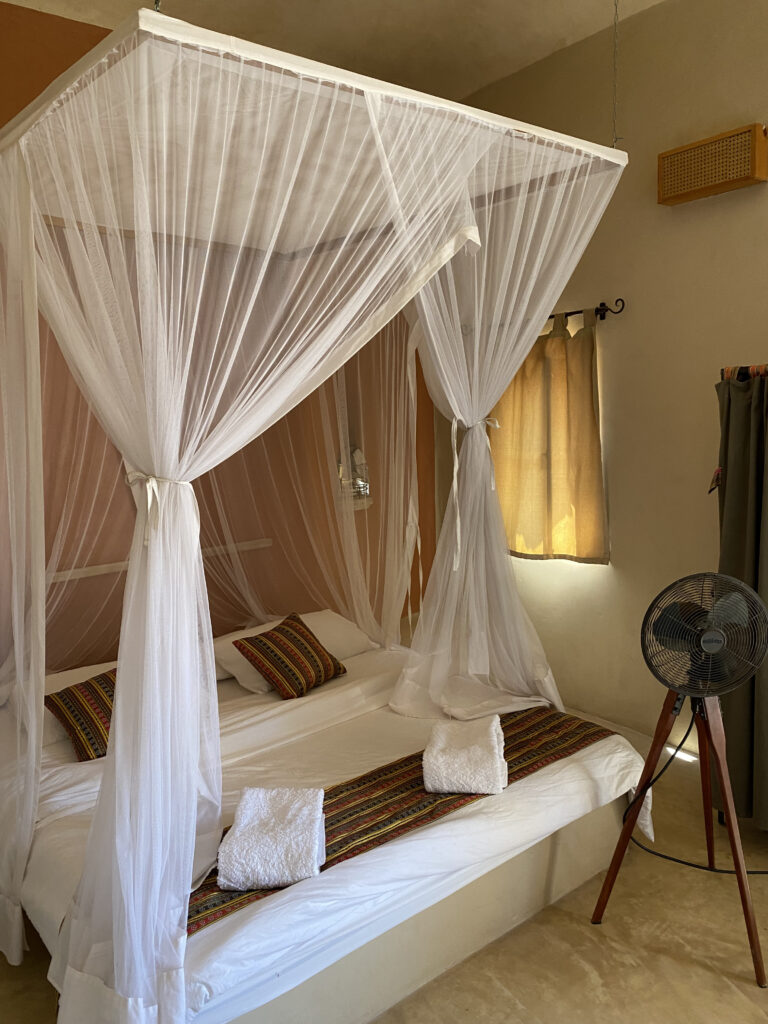
The Feynan Lodge has four principles of ethos: to offer guests experiences tied to nature, archeology, culture of the community, and history; to contribute to the conservation work of the Dana Biosphere Reserve; to benefit the local community; and to have a minimal impact on the environment. Fifty percent of the profit made at the lodge goes back into the community.
Guests can partake in hiking to discover plants of the area or trekking through canyons or other archeological sites. At night, because the lodge is off the grid and only uses solar with 200 candles lighting everywhere except in the bathrooms and the main kitchen, there is no light pollution which makes stargazing from the roof an incredible experience. There is a large telescope on the roof to see the stars and planets at Feynan Ecolodge.
Talk about green, water to be used for washing and showering is collected from a nearby stream into a water pipe that runs up the side of the lodge. They use green and black water for the trees. There is no plastic on the grounds. All water for the guests is in clay containers, even for those who take water on a trek.
The Wadi Feynan region dates as far back as 500,000 years. This area is also known as one of the largest copper mines in the Roman Empire. Copper mining and smelting dates back to 4500 B.C. Both the cultural and
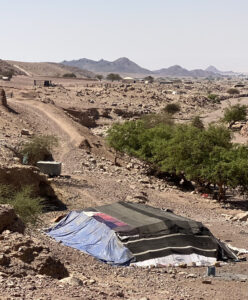
environmental heritage of Wadi Feynan are supposed to be protected by the Law of Antiquities No. 21 of 1988 and amended Law No. 23 of 2004, and by the Environmental Law of 2017. Moreover, Dana Biosphere Reserve is on the tentative list of World Heritage Committee, which would give the area an additional layer of protection by international law.
Today, the people of Wadi Feynan are farmers and goat herders. The area is quiet with few inhabitants.
A group of the International Food Wine Travel Writers Association arrived along a very bumpy dirt road to the Feynan Ecolodge to tour this unique lodge and to be guided by a local, Mohammad, to experience a Bedouin tent where we were to see breadmaking take place.
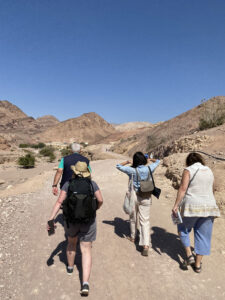
We walked from the lodge along a dusty path seeing where some of the Bedouin families live. There are around 500 members of the local Bedouin tribe composed of 80 families who live here. Bedouins traditionally migrate. This group of Bedouins migrate up to the Dana mountain range in the summer with their goats and sheep and then come back to this area in the autumn because of school. By the way, goat hair is used in making the covering for their tents during cool months.
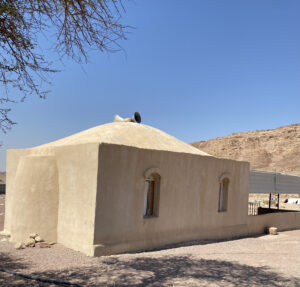
As we walked along the trail, we saw a mosque with a large horn on top of the building to call the locals to prayer each day. Further along, we passed the school where we were eagerly greeted by one of the attendees. The local school is for first through tenth grade.
As we passed some of the tents, we were told no one owns any of the land. They
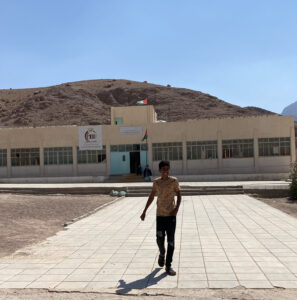
live for free off the land. Many of the locals live in the nearest town but come each day to care for crops and livestock.
When we arrived at the tent where the bread was to be made, Mohammad was open to our questions. He told us every tribe has a leader and that leader settles any disputes between the tribes.
We asked about weddings. When it comes to deciding if the groom is the right
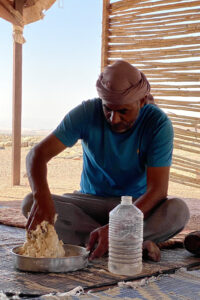
person, all the family must agree about the wedding. If one doesn’t agree, the whole family unit leaves. There are three days in a marriage—Tuesday, Wednesday, and Thursday. Tuesday is within the tribe that meets together.
Wednesday is for the neighboring tribes and then on Thursday, the wedding is with the couple.
Our bread maker’s name was Hussein. The bread itself is called Arbood bread which is the traditional bread of the Bedouins. It consists of wheat flour, water, and salt. The wheat was
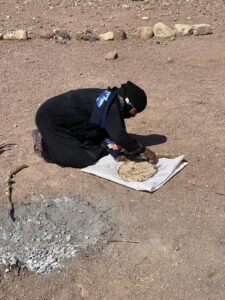
always carried as the Bedouins traveled along with a small amount of wood to make a fire. This technique dates back to around 2000 BC.
The method is to make a small hole in the sand where a fire is lit that creates embers and ashes. The rounded piece of bread is then placed on top of the ashes and covered with more ashes to bake for about 15 minutes. A stick is used to flip the bread to the other side. After about 30 minutes, it is ready to eat. Hussein’s mother, Raifa, took the bread from the ashes and beat off any remaining ashes on top of a rug.
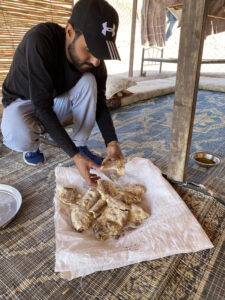
We all enjoyed this warm bread broken into ten pieces to be dipped in olive oil. Along with the bread we were served a sweet hot tea of ginger, clove, rosemary, anise, cinnamon, verbena, lemon, and mint.
As we sat on cushions enjoying the warm bread and tea, we saw a young girl goat herder walk past outside the tent. Just a little bit of daily life in Wadi Feynan.
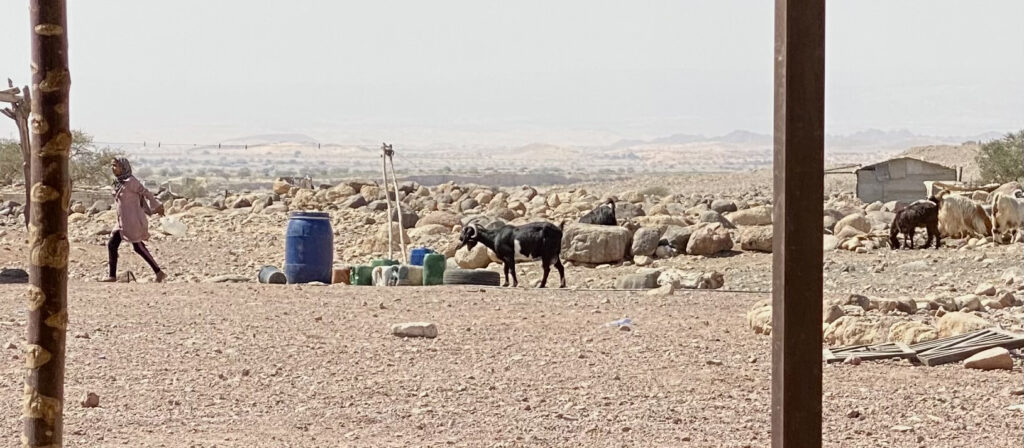
I would recommend a stay at Feynan Ecolodge because it offers a contemporary lodge with all the amenities surrounded by nature where you can get a true understanding of Bedouin life and help to support the tribe by knowing that part of the price of your stay goes to them.
